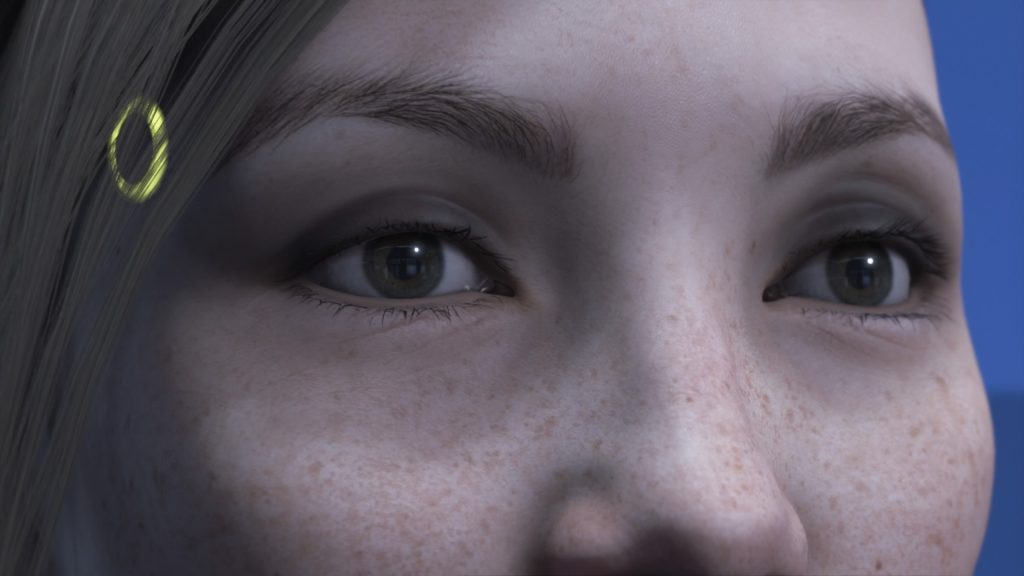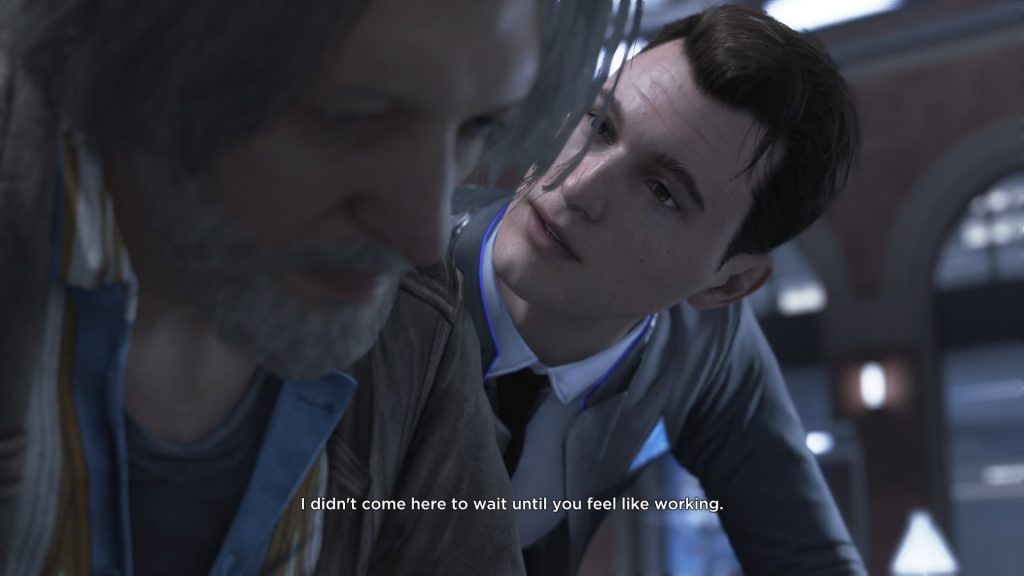Detroit: Become Human was nothing like anything that had been released on the market to date. Gamers weren’t sure what to expect when it hit the shelves. It was beautiful, boasted numerous gaming paths based on the choices you made throughout the game, and had robots. That was enough to encourage buyers, to the tune of two million copies sold by the month of December.
It has to be said upfront: the animation in Detroit: Become Human is beautiful. The camera angles follow more like a movie than the third person perspective we’ve come to expect from video games, giving us up close shots of how much detail went into the design. Little things like facial tics feel fluid and natural.

The game mechanics are simple. Since the game is largely a visual novel, the majority of your interactions are simply dialogue choices. This is interrupted at key scenes where you have to push button sequences to correctly dodge, run or attack depending on the situation. If you fail at the key strokes there are consequences that alter the rest of the story.
And when it comes to story narrative, Detroit: Become Human doesn’t disappoint. Over the course of the story you take on the role of three different androids in a futuristic Detroit that now has artificial intelligence. The androids are used primarily in service roles. You see house keepers, shop keepers, personal assistants and gardeners to name a few. There are the rarer roles as well, such as the one played by Conner.

Conner is one of the three perspectives you take on as the story unfolds. He’s an android hand crafted to assist with detective work, specifically in helping the police department determine why some androids have been going rogue. He’s assigned to be the partner of Hank, an old grizzled cop who hates androids. It’s through their interactions along with your other two narrators that you begin to understand what being human means from the perspective of someone who isn’t awarded that title.
The story really does vary greatly from the beginning scenes depending on the choices you make. Some choices made in the first act impact the final scenes of the game. They might open doors to you or limit your options. But regardless of the choices you make, ultimately Detroit: Become Human is a story about what humanity means. Many people have wondered if it’s more nature or nurture that makes us who we are, and this game attempts to answer that.
What’s most interesting is the way the game posits the answer. Just like reality, it isn’t black or white. The way you act and treat others isn’t always reflected back on you. Some people are just mean, whether they’re human or android. The majority of people lie somewhere in the middle and their motivations and there is no one real answer. Whether nature or nurture is dominant, or whether your character being an android predetermines their humanity, is dependent entirely on the choices you make and how you view the world.
The way the androids are treated throughout the game also serves as a parallel to how we treat those we don’t see as fully human. The game itself draws direct lines between the way androids are treated in Detroit and the way slaves were treated in southern America.

So while the technology in Detroit: Become Human may be decades away, the attitudes in it aren’t. The forced perspective of those who are being treated as others forces the player to live in that perspective for a moment. It’s not often that a game makes us reconsider who we are as people, but Detroit: Being Human allows for a glimpse into that world and maybe makes us slightly better at being humans ourselves.
Overall if you’re a fan of choice driven narratives and plots that make you reconsider everything you thought you knew about what being human means, I recommend giving Detroit: Become Human a spin.




